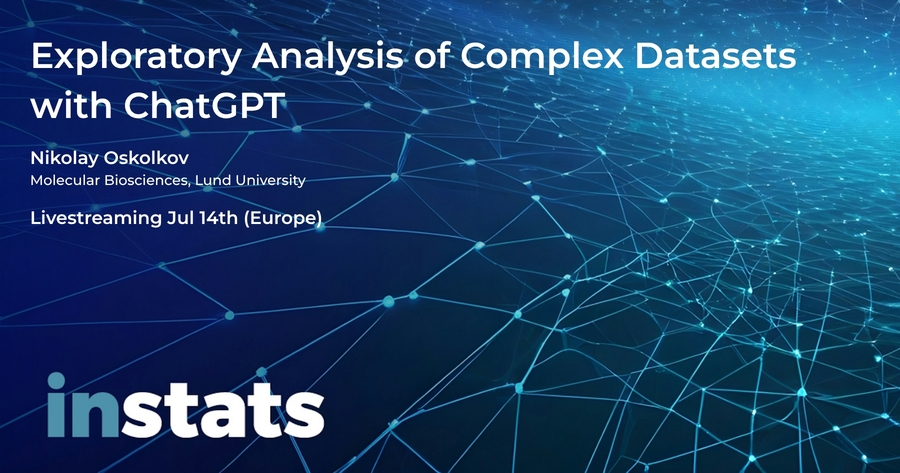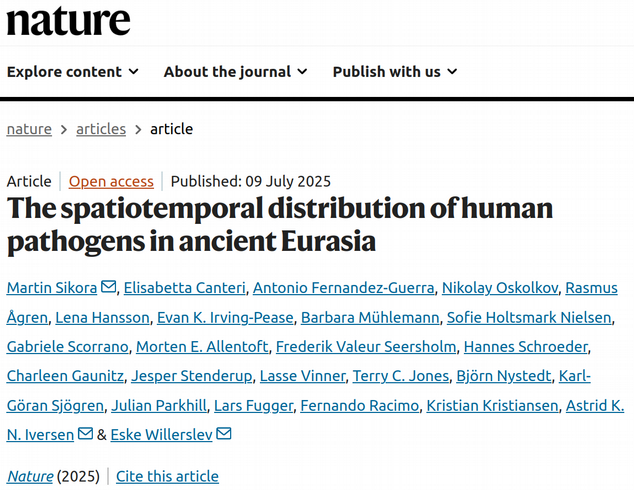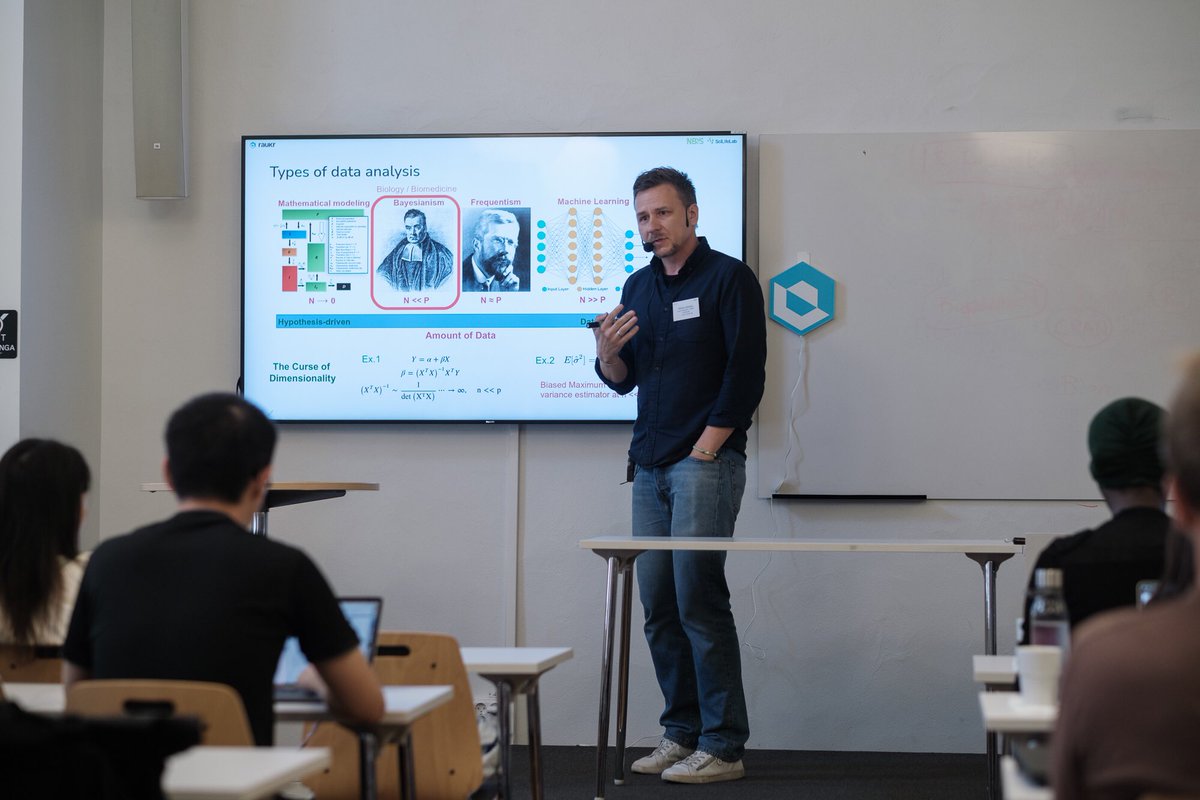Nikolay Oskolkov
@NikolayOskolkov
Group Leader (PI) at LIOS, Riga, Latvia. PhD in theoretical physics. Interested in computational biology, statistics and machine learning
I am starting a computational lab at LIOS, Riga, Latvia, and going to recruit a few people. Please DM if you are interested in a postdoc or PhD position in my Metabolic Research Group. I can highly recommend Riga, it is a beautiful city with very good living conditions.
I’ve had a great experience working with Nikolay—challenging projects and real impact. Highly recommended!
I am starting a computational lab at LIOS, Riga, Latvia, and going to recruit a few people. Please DM if you are interested in a postdoc or PhD position in my Metabolic Research Group. I can highly recommend Riga, it is a beautiful city with very good living conditions.
On Monday the 14th of July 2025, 2-8 pm CET, I am running an online seminar on dimensionality reduction and clustering, everyone is welcome to join! instats.org/seminar/explor…

Our paper on ancient infectious diseases in Eurasia is out in Nature. Congratulations Martin Sikora, Eske Willerslev and all the co-authors!

Everyone is very welcome to join, looking forward!
🚨 Physalia lands in Barcelona! 🚨 Join our Machine Learning for Multi-Omics Integration course with @NikolayOskolkov at the University of Barcelona 🇪🇸! 📅 Dec 15–17 Learn cutting-edge ML, deep learning & multiomics data integration. physalia-courses.org/courses-worksh…
Teaching stats and machine learning at #RaukR @NBISwe is always fun, thanks everyone for the great discussion!

Huge thanks to @NikolayOskolkov and all the participants of the 2nd edition of the Machine Learning for Multi-Omics Integration course! (We’re missing a few faces in this photo) If you want to join us for the next edition of this course, have a look at: physalia-courses.org/courses-worksh…
We’ve just kicked off the 2nd edition of our Machine Learning for Multi-Omics Integration course w/ @NikolayOskolkov & a group of attendees from all over the globe! 🌍 We’ll explore machine learning methods for integrating large and complex biological datasets 🚀
Did leprosy exist in the Americas before European invasion? Our lab #aDNA study supervised by @NRascovan with Dr Charlotte Avanzi (CSU) finds M.lepromatosis in pre-colonial Ancestors from North and South America. science.org/doi/10.1126/sc…
Registration is now open for the course "AI for Genomics: From CNNs and LSTMs to Transformers" with @NikolayOskolkov Explore how modern AI architectures—CNNs, LSTMs & Transformers—can be applied to genomics through hands-on coding sessions physalia-courses.org/courses-worksh…
🚨 Course Alert 🚨 Registrations are now OPEN for the Environmental Metagenomics course this October! 🧬 Join us with @NikolayOskolkov & @aroney_samuel for a deep dive into the environmental metagenomics world @nanopore @PacBio
This course offers a deep dive into the unique challenges and computational methods used for analyzing ancient microbial, animal, and plant DNA — with a focus on practical implementation using the aMeta workflow. physalia-courses.org/courses-worksh… with @NikolayOskolkov
Are you an evolutionary/population geneticist in Denmark? The EPIC conference is back and it will take place on 11-12 August 2025 in Aarhus. Come along for two days of great talks and networking! #EPICdk25 Hosts: @MolBiolAU & @PopGenDK Register now at: popgen.dk/epic/
In our course on Ancient Metagenomics, you can learn more about this with @NikolayOskolkov physalia-courses.org/courses-worksh…
If you use Kraken for profiling microbial/environmental/ancient metagenomic data, check this preprint where I benchmark filtering strategies of Kraken output on simulated microbial and environmental metagenomic samples, and provide recommendations for optimal filtering thresholds
The world’s first de-extincted animals, dire wolf brothers Romulus and Remus, were born on October 1, 2024. They are best buds, growing stronger every day, and they live together on a secure, expansive ecological preserve. And while they’re BFFs, they are being socialized with…
If you use Kraken for profiling microbial/environmental/ancient metagenomic data, check this preprint where I benchmark filtering strategies of Kraken output on simulated microbial and environmental metagenomic samples, and provide recommendations for optimal filtering thresholds

#MetagenomicsMonday🧬Pseudogymnoascus fungi found in Ötzi’s gut! An accidental ingestion? pmc.ncbi.nlm.nih.gov/articles/PMC11…

